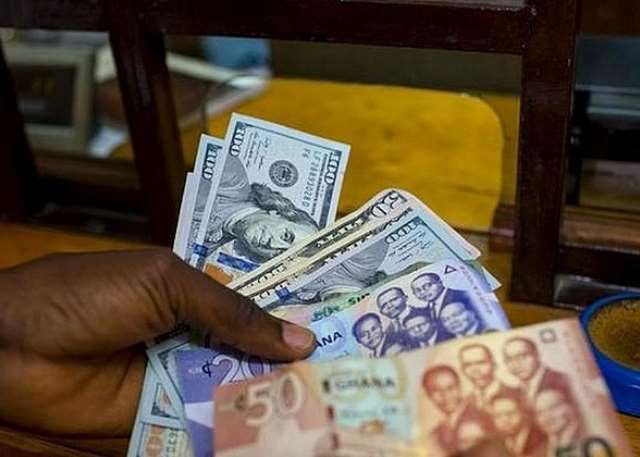Ghanaian Cedi Demonstrates Stability Against Major Currencies
The Ghanaian cedi exhibited remarkable stability against major international currencies, particularly the US dollar, on Monday, July 14, 2025. This stability reflects a positive trend in the Ghanaian foreign exchange market, indicating a potential strengthening of the cedi’s position. Data collected from various sources, including Cedirates.com, forex bureaus, the Bank of Ghana interbank market, and money transfer operators, paints a consistent picture of a cedi holding its ground against the dollar, pound, and euro. This stability is crucial for Ghana’s economy, impacting import and export prices, inflation, and overall economic confidence.
Forex Bureaus and Interbank Market Align on Cedi’s Value
Forex bureaus across Ghana reported relatively consistent exchange rates for the cedi against the US dollar. The average buying rate hovered around GHS11.50, while the selling rate was approximately GHS11.95. This slight difference between buying and selling rates is typical in the foreign exchange market and represents the profit margin for the bureaus. Importantly, these rates are closely aligned with the Bank of Ghana’s interbank market rates, which stood at GHS10.39 for buying and GHS10.41 for selling. This convergence between the interbank and bureau rates suggests a well-functioning and transparent foreign exchange market, minimizing arbitrage opportunities and contributing to overall market stability. The minimal spread between the buying and selling rates in the interbank market further reinforces the cedi’s stability.
Pound and Euro Exchange Rates Reflect Cedi’s Strength
The Ghanaian cedi also displayed stability against the British pound and the euro. At forex bureaus, the pound was trading at an average buying rate of GHS13.89 and a selling rate of GHS14.75. The Bank of Ghana’s interbank rate for the pound was GHS14.06, again demonstrating consistency between the two markets. Similarly, the euro traded at GHS12.05 for buying and GHS12.76 for selling at forex bureaus, while the interbank rate was GHS12.17. These figures suggest that the cedi’s strength is not limited to the US dollar but extends to other major international currencies, indicating a broader positive trend in the Ghanaian economy.
Money Transfer Operators Offer Competitive Rates for Remittances
Money transfer operators, including LemFi and Afriex, offered competitive exchange rates for remittances from the US and UK to Ghana. For dollar remittances, LemFi offered a rate of GHS10.35, while Afriex offered GHS10.36. For pound remittances, LemFi offered GHS13.98 and Afriex offered GHS14.11. Afriex also offered a rate of GHS12.11 for the euro, while LemFi offered GHS12.10. These competitive rates benefit Ghanaians receiving remittances from abroad, ensuring they receive a fair value for their money and maximizing the impact of these inflows on the Ghanaian economy. The close proximity of these rates to both forex bureau and interbank rates further highlights the competitive and transparent nature of the Ghanaian foreign exchange market.
Digital Subscription Payments Reflect Slightly Higher Exchange Rates
Digital subscription payments for services like Netflix, Spotify, and Apple Music, made via Visa and Mastercard, were processed at an exchange rate of GHS11.18 for both cards. This rate is slightly higher than the interbank and money transfer rates, likely reflecting processing fees and other charges associated with international card transactions. While slightly higher, these rates still remain within a reasonable range, ensuring accessibility to these digital services for Ghanaian consumers. The consistency between Visa and Mastercard rates indicates a standardized approach to foreign exchange for these types of transactions.
Overall Positive Outlook for the Ghanaian Cedi
The stability observed in the Ghanaian cedi’s exchange rate against major currencies on July 14, 2025, signals a positive outlook for the Ghanaian economy. The convergence of rates across different market segments, including forex bureaus, the interbank market, and money transfer operators, indicates a healthy and transparent foreign exchange market. The competitive rates offered by money transfer operators benefit Ghanaians receiving remittances, while the relatively stable rates for digital subscriptions maintain accessibility to international online services. This overall stability is a positive sign for Ghana’s economic future and suggests continued strength and resilience in the face of global economic fluctuations. The data suggests a well-regulated market, contributing to consumer confidence and facilitating international trade and investment. This stability bodes well for future economic growth and development in Ghana.


